-
Bankruptcy
-
How Long Does a Bankruptcy Filing Last in Connecticut?
It depends. Chapter 7 bankruptcies are often fairly efficient, and most cases will only take a few months. Chapter 13 bankruptcy represents a greater time commitment, as your repayment plan will need to last a minimum of three years. It can last up to five years.
-
What Kinds of Debt Can Bankruptcy Eliminate in Connecticut?
When you complete a Chapter 7 bankruptcy or Chapter 13 bankruptcy, you are in most cases entitled to a discharge of your unsecured debt. This means you can eliminate credit card debt, medical bills, personal loans, and unpaid utility bills.
You will not be able to eliminate secured debts without losing the underlying collateral. You also cannot (in most cases) eliminate student loan debt, tax debt, or missed child or spousal support payments.
-
Will Bankruptcy Hurt My Credit in Connecticut?
Yes, to some extent. You must understand that filing for either type of bankruptcy will unavoidably hurt your credit, and the bankruptcy will remain on your credit report for several years. However, continuing to accumulate debt may cause greater damage to your credit in the long run. Credit repair is possible post-bankruptcy, and there are several strategies that can help you efficiently rebuild your credit score.
-
Can Bankruptcy Help Me Save My Home in Connecticut?
Yes. If you have fallen behind on mortgage payments and are in danger of losing your home, bankruptcy can potentially stop the foreclosure process and give you the time and relief you need to cure the default.
In most cases, it will make more sense to file for Chapter 13 bankruptcy if you are hoping to save your home. Filing your petition will trigger the automatic stay, a court order that halts all collection actions, including foreclosure. So long as you file for bankruptcy before your home is sold, the foreclosure process must temporarily stop. Your lender will only be able to continue if they receive special permission from the bankruptcy or once your case is over.
To save your home, you must pay all mortgage arrears in your Chapter 13 plan. Fortunately, Chapter 13 repayment plans require you to prioritize certain types of debt, including secured debt. This means you will not initially have to worry about paying unsecured debts and can focus your available financial resources on your mortgage arrears.
If you keep up with mortgage payments and cure your default over the course of your plan, your lender will not be able to pursue a foreclosure once your bankruptcy case is over. After making all plan payments, you will also typically be permitted to discharge any remaining unsecured debt. This can give you more financial resources to make mortgage payments moving forward.
-
Can Bankruptcy Help Me Eliminate Student Loan Debt in Connecticut?
In many cases, no. Unfortunately, Chapter 7 bankruptcy and Chapter 13 bankruptcy discharges do not eliminate student loan debt. Furthermore, student loan debt is considered a “non-priority debt” in a Chapter 13 bankruptcy. This means your plan payments will need to focus on tax debt, missed child and spousal support payments, and secured debt before they can touch student loan debt.
There are some very limited circumstances where you may be able to obtain student loan relief through bankruptcy. After completing your filing, you can file an “adversity proceeding” and argue that having to pay the remainder of what you owe constitutes an undue hardship. The bankruptcy court will typically only agree to eliminate student loan debt if you are experiencing extreme financial distress, your financial situation is unlikely to improve, and you made a good faith effort to pay what you owe. Most borrowers do not qualify for this relief.
-
Is Bankruptcy Right for Everyone in Connecticut?
Not necessarily. While bankruptcy can bring powerful relief, you should only file if there is no other way to get on top of your debt. Chapter 7 bankruptcy may not make sense if the bulk of your debts are secured, for example, as you will not be able to eliminate those debts without losing the associated assets. Chapter 13 bankruptcy may not be the right choice if you are unwilling or unable to commit to a multi-year repayment plan.
If the majority of your financial difficulties are rooted in tax debt or student loan debt, you may need to consider other relief strategies. Our attorney will be straightforward with you when advising whether bankruptcy is likely to help you.
-
Do I Need a Lawyer to File for Bankruptcy in Connecticut?
You have the option of filing for bankruptcy without the help of an attorney but doing so is probably not in your best interest. Employees of the bankruptcy court, including the judge, cannot provide you with legal advice, and making mistakes or omissions on your filing can result in serious consequences. A qualified lawyer can advise whether bankruptcy is right for you, which type of bankruptcy to file for, what types of debt you can hope to eliminate, how you can protect your assets, and how to prepare your petition. At the Law Office of George C. Tzepos, we are ready to guide you every step of the way.
-
-
Chapter 13 Bankruptcy
-
Will I Lose Everything If I File for Bankruptcy in Connecticut?
No. If you file for Chapter 13 bankruptcy, you will not lose any of your secured property if you keep up with your payments.
Chapter 7 bankruptcy does involve “liquidation.” In exchange for a debt discharge, non-exempt assets will be sold by the bankruptcy trustee to compensate your creditors. Connecticut allows you to exempt many types of property, including equity in your home, equity in your vehicle, a percentage of your earned wages, most retirement plans, and many types of personal items (including wedding rings, furniture, clothing, and appliances). In other words, you will not be left with nothing, and you will be able to keep many of your most essential assets.
-


-
“People surely don’t have his level of honesty, respect and care that’s needed to get us through some of these joyful, scary, or difficult times in our lives.” - L.G.
-
“Kind, down-to-earth, and he gets the job done quickly.” - Gizelle
-
“Very nice guy, super down to earth and easy to get along with, yet thorough.” - Matthew

